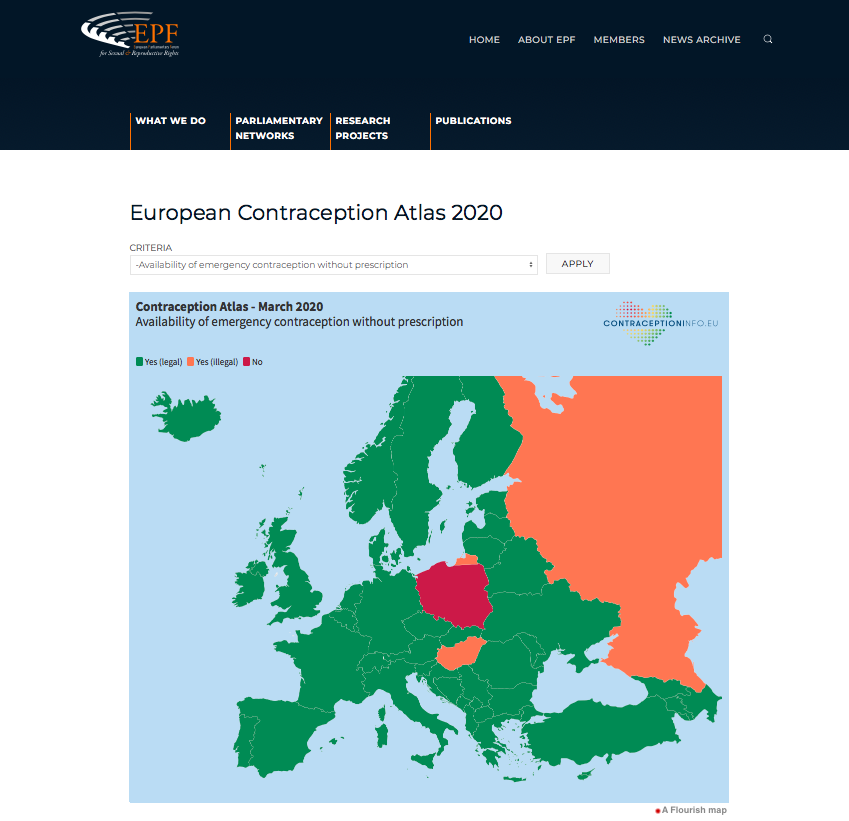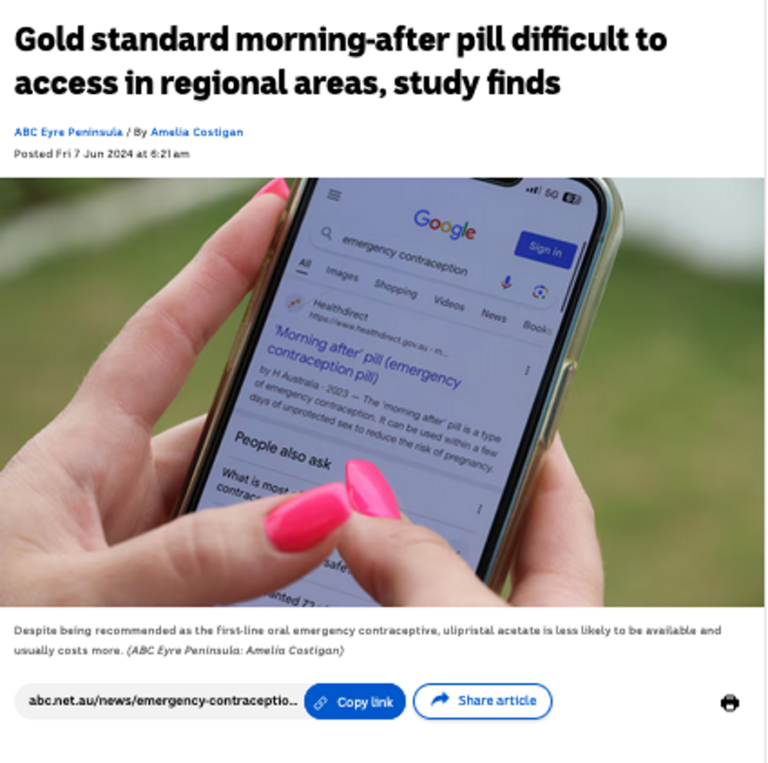European Contraception Policy Atlas 2020
 If you missed the on-line launch of the Atlas today, YouTube is here to help: https://youtu.be/5sT5mKS-UtI
If you missed the on-line launch of the Atlas today, YouTube is here to help: https://youtu.be/5sT5mKS-UtI  If you missed the on-line launch of the Atlas today, YouTube is here to help: https://youtu.be/5sT5mKS-UtI
If you missed the on-line launch of the Atlas today, YouTube is here to help: https://youtu.be/5sT5mKS-UtI A study published in The European Journal of Contraception & Reproductive Health Care assessed awareness and knowledge of EC among adolescents in Berlin, Germany. The authors conducted a cross-sectional survey among ninth graders in a convenience sample of 13 Berlin schools in which they assessed perceived and actual knowledge on the effectiveness, timeframe, and availability of…
In 2012, HRA Pharma and the BVA Institute conducted a survey among a representative sample of 2,500 women aged 16-45 on their perceptions of EC. The survey found that among women who reported having unprotected or inadequately protected intercourse, only 20% used EC, due mainly to an underestimation of the risk of pregnancy. This survey…

June 2024. A recent study assessed the availability of emergency contraceptive pills (ECPs) in Australian community pharmacies. The study found that 30 % of the pharmacies surveyed did not stock ulipristal acetate (UPA) ECPs, despite being recommended as the first-line oral EC. On average, UPA ECPs were 13$ more expensive than LNG ECPs. ECP accessibility…
March 20th, 2018. The International Medical Advisory Panel (IMAP) of the International Planned Parenthood Federation (IPPF), just published its new Statement on emergency contraception (EC). This document offers guidance for health care providers to strengthen the provision of EC services according to the latest research, experiences and international recommendations. While the Statement is primarily intended to inform IPPF Member Associations, it also provides…
June 6, 2018. The Ministry of Health of Andorra announced today that, upon review of the current provision policies for emergency contraceptive pills (ECPs), pharmacists have been informed that prescription requirements have been lifted. Andorra currently has both LNG and UPA ECP products in the market. The safety profile of ECPs, the critical importance of facilitating…
In early July 2015, the U.N. Human Rights Council, the principal body at the U.N. that promotes and protects human rights for all, reaffirmed its commitment to women’s and girl’s human rights by passing a key resolution to end violence against women and eradicate child, early, and forced marriage. The resolution, which was adopted without a…
Menú
This website uses cookies so that we can provide you with the best user experience possible. Cookie information is stored in your browser and performs functions such as recognising you when you return to our website and helping our team to understand which sections of the website you find most interesting and useful.
Strictly Necessary Cookie should be enabled at all times so that we can save your preferences for cookie settings.
If you disable this cookie, we will not be able to save your preferences. This means that every time you visit this website you will need to enable or disable cookies again.
This website uses Google Analytics to collect anonymous information such as the number of visitors to the site, and the most popular pages.
Keeping this cookie enabled helps us to improve our website.
Please enable Strictly Necessary Cookies first so that we can save your preferences!
More information about our Cookie Policy